How is climate change affecting accounting and business?
Climate change is creating unprecedented risks for businesses around the world, which is making investors nervous. A key way that businesses can address this anxiety is through disclosing how they impact, and are impacted by, climate change. Dr Sanjay Banerjee of the University of Alberta in Canada is researching how businesses are going about this, and what this means for future policy and regulation.
Talk like an accounting researcher
Capital — wealth in the form of money or assets
Carbon tax — a tax on the usage of fossil fuels and/or greenhouse gas emissions
Climate disclosure — the sharing or publication of climate-related information related to a business, such as climate risk assessments and mitigation plans
Climate risk — the potential for the impacts of climate change to have negative consequences
Investor — a person or organisation that gives money towards a certain business or project, with the expectation of receiving a profit from the investment at a later date
Machine learning — a type of artificial intelligence that uses algorithms to imitate the way that humans learn and perform certain tasks more accurately over time
Shareholder — any person or organisation that owns shares in a company
Shares — the subunits of a company’s capital/stock
Stock — the sum of a company’s shares
Understanding how companies are responding to the threat of climate change is of huge interest to investors, regulators and policy makers. Based at the University of Alberta, Dr Sanjay Banerjee collaborates with Dr Vikas Mehrotra, Dean and Professor of Finance at the University of Alberta School of Business, and Dr Rajesh Vijayaraghavan, Assistant Professor at the University of British Columbia Sauder School of Business. The team studies accounting and its relationship with climate. Sanjay, Vikas and Rajesh’s research is uncovering what factors influence companies to investigate and voluntarily disclose the level of climate risk they face, and what this means for the wider world of finance and policy.
Climate risks
“Climate change presents two types of risks to businesses: physical risks and transition risks,” says Sanjay. Physical climate risks refer to the direct effects of the changing climate, such as drought, wildfires, hurricanes or sea level rise. These can all affect businesses through damaging their production lines or stores, disrupting supply chains, or impacting the daily life of their workforce. Transition risks refer to the uncertainties around the transition to a low-carbon economy. “For example, companies may have to pay higher energy costs if carbon tax policies are introduced, or they may make investments in new unproven green technologies,” explains Sanjay. “Some businesses, such as coal and gas companies, will have reduced demand for their products.”
Almost every business in the world will be exposed to at least some of these risks, so predicting and planning for the future is essential. “These costs already impact us today. It’s estimated that large climate disasters cost the US between $300 to $500 billion every five years,” says Sanjay. “Companies are, therefore, developing strategies to avoid or minimise these losses.”
Climate disclosure
Businesses rely on investors to provide the capital that keeps their operations running. This means that they listen closely to investors’ wants and needs to keep them happy. “Investors are increasingly demanding climate disclosure, which involves companies calculating and sharing the level and type of climate risks that they are exposed to,” says Sanjay. “This helps investors decide the value of the company and whether they should invest.”
Sanjay, Vikas and Rajesh are investigating how investors’ demands impact companies’ decisions to make such disclosures, and if so, which type of disclosure outlet they use. “There are two outlets that are most often used for voluntary climate disclosure,” says Sanjay. “The first involves working with CDP, a charity formerly known as the Carbon Disclosure Project, which asks companies to disclose their climate risk and their strategies to fight climate change. The second involves the companies themselves publishing climate-related information in their corporate social responsibility (CSR) reports.”
Analysing the approaches of thousands of companies is no easy task, so the team has recruited the help of machine learning algorithms. “We have potentially hundreds of thousands of documents to examine, and machine learning helps us do this faster and with fewer mistakes,” explains Sanjay. “For example, the algorithms can potentially search for words or phrases related to climate risk, using sources ranging from financial reports, social media posts and telephone call transcripts.”
What affects climate disclosure?
The team has already uncovered some interesting findings. “We found evidence that companies in which the three largest investors (Blackrock, Vanguard and State Street) have ownership are more likely to make voluntary climate disclosures via CDP than via corporate social responsibility reports,” says Sanjay. “The same is true for companies that are top emitters of greenhouse gases.” In fact, in 2023, CDP Global reported that 746 institutional investors with a collective $136 trillion in assets requested companies to disclose via CDP.
Separate research finds several other factors that can influence climate disclosure. “Companies are more likely to make voluntary climate disclosure if the company is large, if its investors are climate-conscious, or if it received climate-related shareholder proposals,” says Sanjay. There is growing incentive for climate disclosure, as investors see the value in such forward planning and will value the company’s stock higher, leading to more investment.
In the real world
The team’s findings are of significant interest to both the public and private sector. “Our findings will inform investors, regulators and companies about how investors’ demand for disclosure influences companies’ decisions,” says Sanjay. “For instance, if investor demand is found to have sufficient impact, then regulators may have to step in to make climate disclosure compulsory.”
There is an ongoing debate about whether companies’ climate disclosures should be voluntary or mandatory, and these results will help inform this discussion. “Even though investors are asking for disclosure, companies are not always responding,” explains Sanjay. “So, regulators around the world have started stepping in to make climate disclosure mandatory.” Looking ahead, Sanjay wants to learn more about the types of climate risk businesses are facing. “Our research did not differentiate between the two types of climate risk,” he says. “The next step for us will be to take a deep dive into physical climate risk – a topic with only limited research so far.” It is only recently that models and datasets have grown sophisticated enough to perform this research, and Sanjay is excited to see what it reveals.
Reference
https://doi.org/10.33424/FUTURUM486
“Companies may have to pay higher energy costs if carbon tax policies are introduced, or they may make investments in new unproven green technologies,” explains Sanjay. © William Potter / Shutterstock.com
Machine learning helps Sanjay to examine hundreds of thousands of documents. © Dillxr / mShutterstock.com
© Rawpixel.com / Shutterstock.com
 Dr Sanjay Banerjee
Dr Sanjay Banerjee
Associate Professor, Alberta School of Business, Department of Accounting and Business Analytics, University of Alberta, Canada
Field of research: Accounting, climate risk
Research project: Climate disclosures: how companies’ physical climate risks impact their investor demands and voluntary disclosures
Funder: Social Sciences and Humanities Research Council of Canada (SSHRC), Canadian Academic Accounting Association (CAAA), CPA Canada
This work is supported by the SSHRC under the Insight Development Grant program (grant no. 430-2021-00461) and the CAAA Research Grant (CAAA-2021-007).
About accounting research
Accounting involves the recording and organisation of business’ financial transactions. Accounting research examines these practices and how they affect the wider world. Sanjay’s work involves examining businesses’ accounting practice and how these relate to business behaviour, policy, regulation and societal trends. He explains more about his field and why accounting has a bigger impact on our everyday lives than we might realise.
“I love to understand the ‘why’ behind the ‘what’. For example, why does a manager behave in a certain way? Why don’t companies disclose their climate risks as much as their investors demand? Why does a regulator make a certain policy decision? Why did the stock price of a company fall after a new regulation? I also love to have the freedom to choose what I want to investigate.
“There remain a lot of unknowns about the financial effects of climate change. Understanding investors’ demands and how companies and regulators are responding to them is vital.
“Machine learning and artificial intelligence (AI) are transforming the field of accounting, and will continue to do so. Accountants today and those in the future need to understand these. Already, big accounting firms are investing in training their employees in these areas, as AI is likely to set new trends in the future.
“Accounting doesn’t have to be dull! It influences society in ways that, typically, we don’t realise. Investors’ decisions to invest depend on companies’ financial reports, which are audited by accountants. If this isn’t done properly, there are real-world impacts: investors will not feel confident to invest in companies, and, with a lack of investment, people might lose their jobs, a relative might lose part of their pension, for instance. Accountants are vital for investors to have trust in companies.”
Pathway from school to accounting research
Sanjay emphasises that a career in accounting research can be approached from a range of different directions. He says you should be comfortable with numbers, be meticulous and precise, practise clear and concise writing, develop soft skills, and stay up to date with technology. For a career in accounting, useful subjects to study at school and beyond include mathematics, statistics, English and sciences.
For a career in accounting practice, a professional licence in chartered (public) accountancy is needed. At university, a bachelor’s degree in business with a major in accounting can be helpful but not necessary. A bachelor’s degree in any discipline can be a starting point for someone to pursue a career in accounting, as long as they complete a certain number of credit-hours of accounting-related coursework and pass the professional licensing exam.
For a career in accounting research, a licence is not needed; rather, a PhD in accounting is the right qualification. A bachelor’s degree in any discipline, including business, economics, engineering, mathematics and science, can be useful.
Explore careers in accounting
The University of Alberta has a wide variety of outreach initiatives, which you can learn about in this report.
You can also learn more about the Department of Accounting and Business Analytics, where Sanjay works.
CPA Alberta and CPA Ontario provide information for high school students about careers in chartered accountancy and offer scholarships, ambassador programmes and events.
In Canada, a chartered accountant makes an average of CAN $80,000 per year, according to Talent.com.
Meet Sanjay
I never originally intended to pursue a career in accounting. My undergraduate degree was in aerospace engineering, and I later worked on missile design and in a variety of other industries. It was only while studying for my PhD that I found two courses especially interesting – and both focused on accounting.
Before, I had subscribed to the common perception that accounting is boring. These two courses showed me otherwise. One, led by Professor Chandra Kanodia, covered how to develop models to understand and predict how accounting information impacts managers’ and investors’ strategic decision making. The other, by Professor John Dickhaut, looked at testing the predictions of these models by conducting experiments in the laboratory.
The publication of my first paper after my PhD was a proud moment. It was published in 2016 in an accounting journal and covered the banks’ response to the 2008 financial crisis. We did some experiments in the laboratory to understand how people make decisions, and we uncovered interesting findings – sometimes providing people with more information can lead them to make bad decisions.
Much more work is required to mitigate climate risk right now. Even though there’s a lot of talk, we still need much more research and action. Another emerging area of interest to me is cryptocurrencies, which are currently subject to very little regulation. I want to study these areas in more detail – and to design a course on sustainability accounting, too.
Sanjay’s top tips
1. To be a good accountant you need to like numbers, precision and computers. But more than that, a diverse set of interests and experience of industry can help a lot.
2. It’s never too late to begin a career in accounting research – in fact, diverse experiences can help. My own career path was far from direct!
3. Always remain curious.
Do you have a question for Sanjay?
Write it in the comments box below and Sanjay will get back to you. (Remember, researchers are very busy people, so you may have to wait a few days.)
2 Comments
Submit a Comment
Learn about sustainability accounting:
www.futurumcareers.com/tackling-modern-slavery-a-sustainability-accounting-perspective

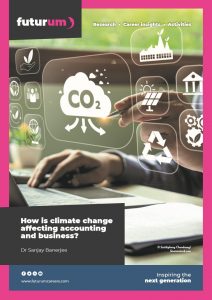
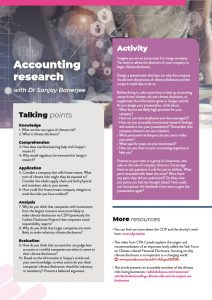
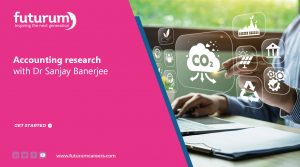


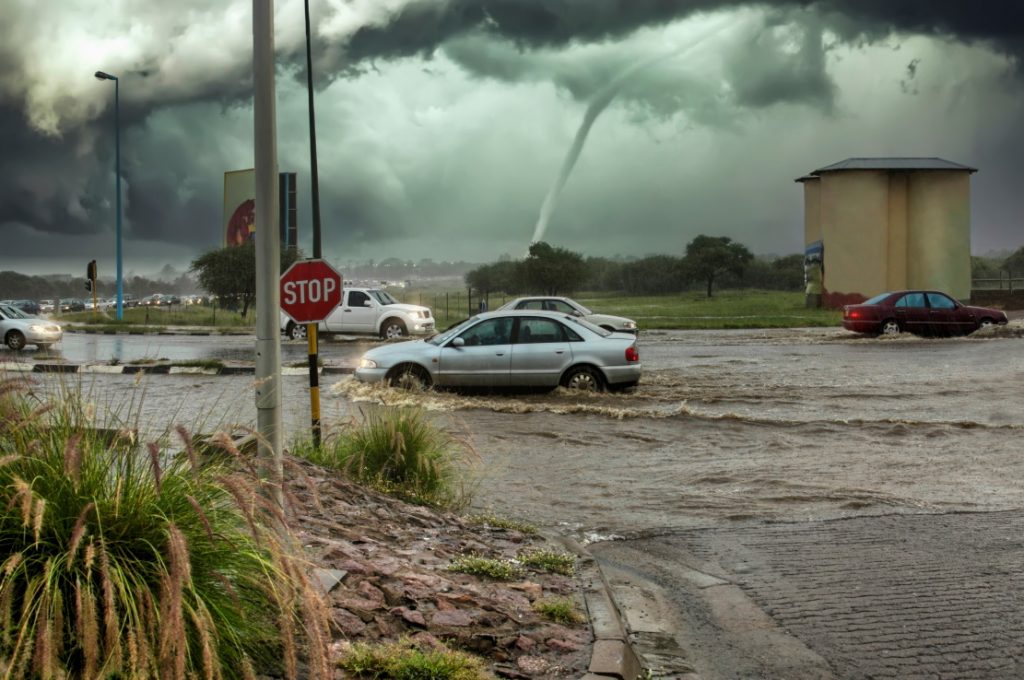
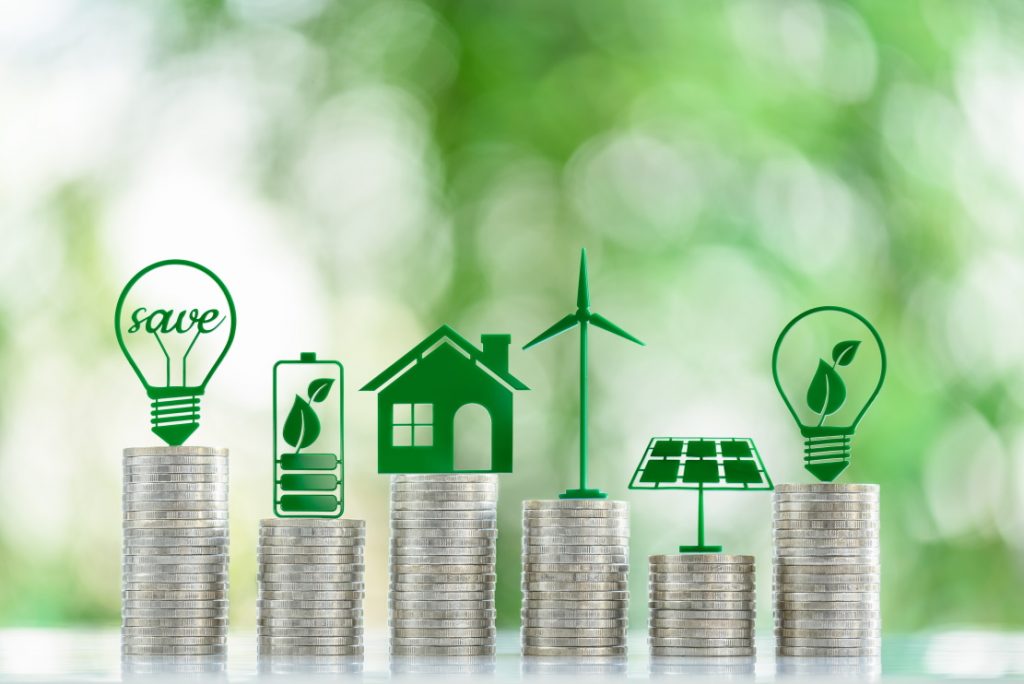


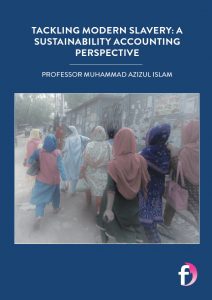
I teach an undergraduate course in Climate, Risk and Adaptation to environmental science and climate studies students at Plymouth State University in New Hampshire, USA. I encourage the students to delve into details and be able to offer specific examples of impacts, solutions, complexities. I do not yet have any material on how losses from climate are determined (other than vague explanations that it is done) and would love for the students to gain better understanding of that process. Can you you point me to resources that could help fill this gap? Also, are you open to being a guest speaker via a remote lecturing platform for this class next Fall term? I can’t offer any compensation but your authentic voice would be quite meaningful for our students.
Dear Prof. Doner,
Thanks for your question. I am currently preparing for a conference. I can send you some materials on the methods for determining losses from climate perhaps by next week. I currently do not have them handy. Also, I will be happy to talk to your students as a guest speaker via a remote lecturing platform.
Best,
Sanjay